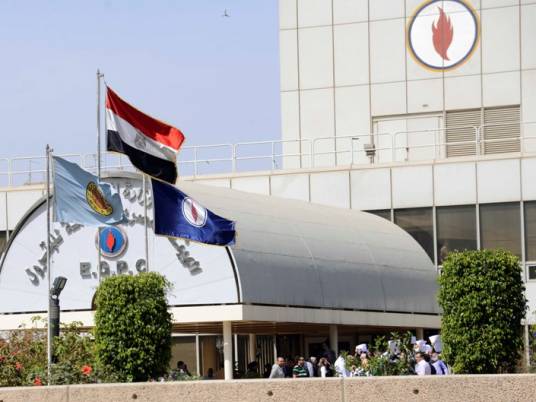
Kuwait Petroleum Corporation has agreed to increase its monthly exports of crude oil to Egypt from 1.5 million to 2 million barrels, Tarek al-Molla, chairman of the state-run Egyptian General Petroleum Corporation, said Monday.
Kuwait will begin sending the larger shipments in November, al-Molla told Anadolu Agency.
Under a 2008 deal, Kuwait sends 1.5 million barrels of crude oil monthly to Egypt, which enjoys credit facilities from the Kuwaiti side.
Last year, Kuwait Petroleum Corporation turned down a request from its Egyptian counterpart to increase the volume of the monthly shipments, citing contractual obligations.
However, as other Gulf nations rushed to extend financial support to Egypt following the July 3 ouster of president Mohamed Morsi, Kuwait joined the drive, pledging $4 billion in aid to the crisis-hit country.
"The Egyptian General Petroleum Corporation will enjoy the same facilities in the original agreement," al-Molla said. "We will pay the price of the shipment nine months after delivery."
Egypt spends some $1.3 billion monthly to import petroleum products, which are then sold on the local market at subsidized prices, aggravating the losses suffered by state-owned oil marketers due to the sale of fuel below cost.
Acute fuel shortages played a part in stoking the mass protests that culminated in the ouster of Morsi – the country's first democratically elected president – by Egypt's powerful military.
"Fuel problems are a source of worry for the government, which exerts its utmost effort to contain them to avoid public uproar," investment expert Mahmoud Abdel-Rahman told AA.
The country is already in urgent need of financial aid to face an ongoing foreign currency shortage, a sizable budget deficit, depreciation of the Egyptian pound and a sharp rise in inflation.
Besides Kuwait, Saudi Arabia and the United Arab Emirates together pledged to provide Egypt with a total of $8 billion in assistance – aid packages that also include the delivery of petroleum products.
"The Gulf aid, especially the petroleum products, will help the government face its current problems," Abdel-Rahman said.
Earlier this month, the Central Bank of Egypt (CBE) said the country's foreign-currency reserves had reached $18.91 billion as of the end of August, compared to $18.88 billion at the end of the previous month.
The CBE attributed the increase to cash injections by Gulf donor states.
On Thursday, Egypt's interim government said it expected to be able to bring the country's budget deficit down to 10 percent during the current fiscal year.
According to official figures, Egypt's budget deficit currently stands at $34.7 billion pounds, or about 14 percent of the national GDP.




